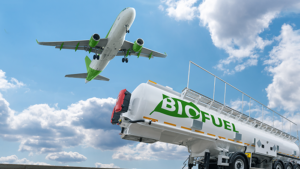
CoBank image
According to the report, the anticipated guidance for the 45Z tax credit, also known as the Clean Fuel Production Credit, will be the major determining factor for the extent of agriculture’s role in SAF production, replacing the 40B tax credit for SAF production.
“The 40B tax credit guidance for SAF fell short in effectively incentivizing farmers to adopt the prescribed set of on-farm conservation practices required to be eligible for the credit,” said Jacqui Fatka, farm supply and biofuels economist with CoBank. “Farmers are hoping the new guidance offers more flexibility to employ practices that are applicable to their individual operations. The 40B guidance reflected a one-size-fits-all approach, which is certainly not the case for farms spanning the entire country.”
While the 45Z tax credit is set to take effect on Jan. 1, 2025, the final guidance has yet to be issued causing uncertainty for farmers, biofuel producers and other market participants. “Biofuel producers are unlikely to move forward on any expansion plans until the new guidance is published,” said Fatka. “And the delay creates more uncertainty for farmers as they make decisions about planting, input purchases and conservation programs for 2025.”

